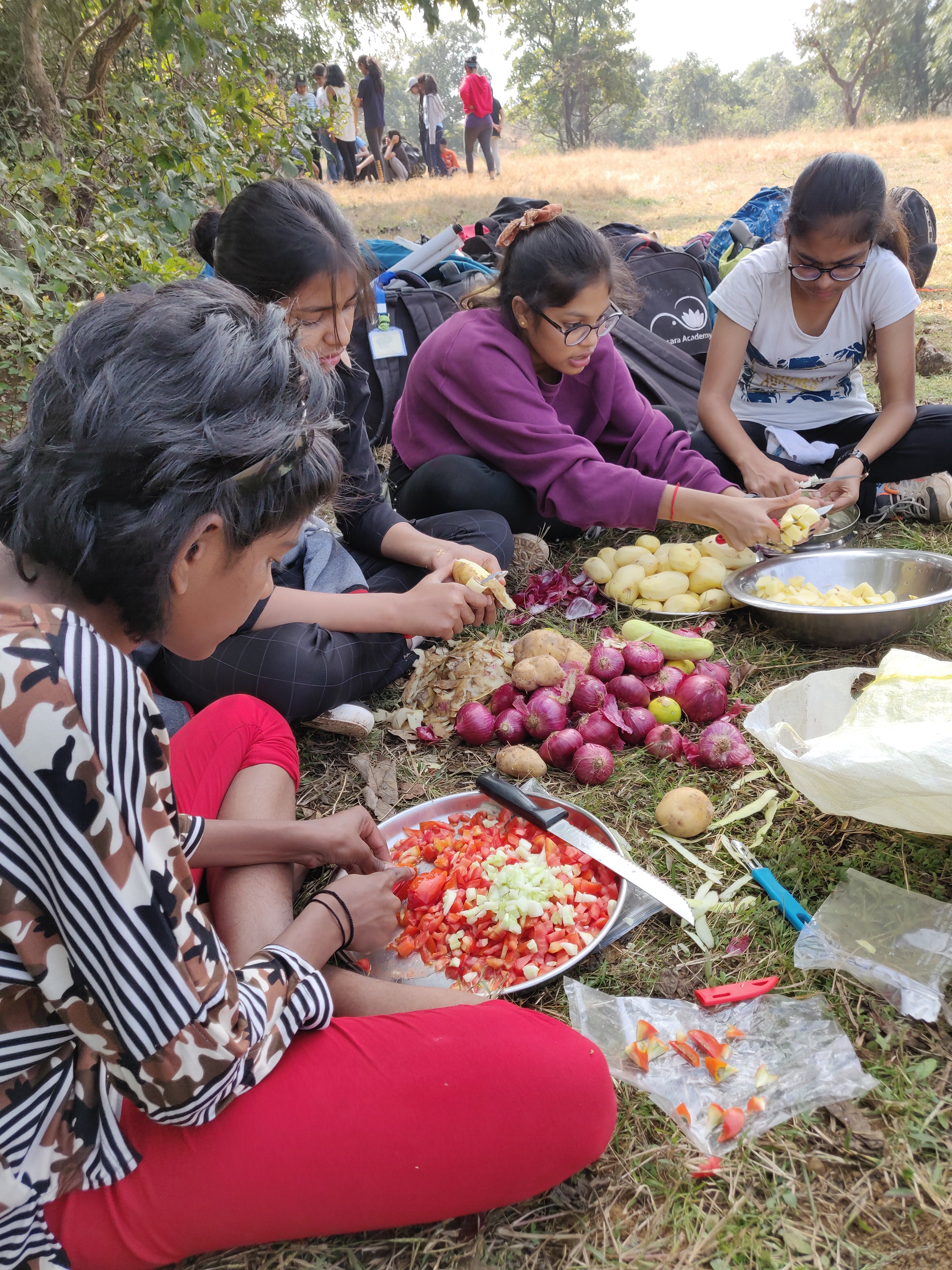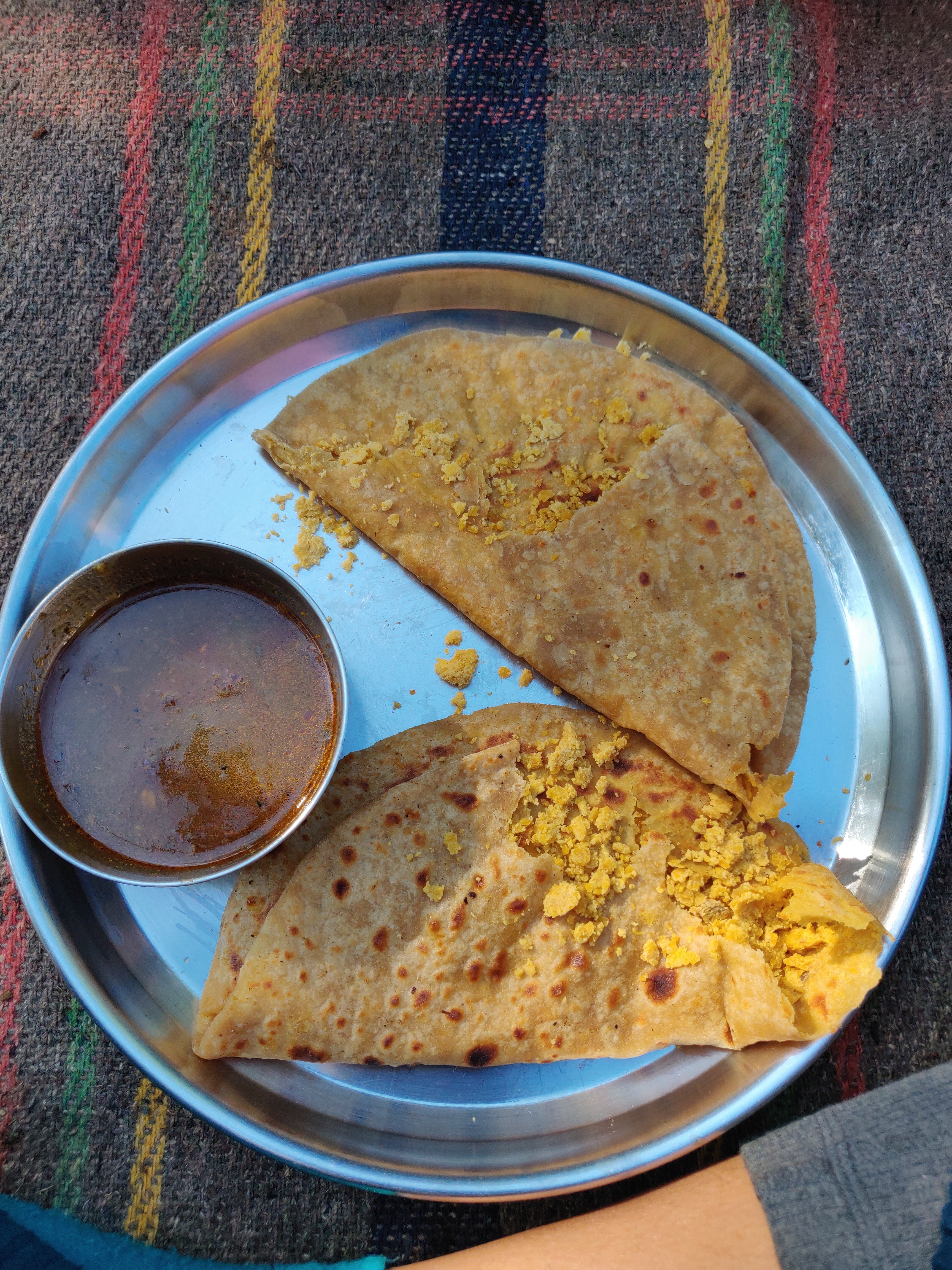written by Aishwarya Phadke

Cities don’t excite me. They never have. I feel more like myself in villages. There’s an innate sense of belonging that helps me warm up to the simple rural folk. So, even if I’m in a new state or a new country, I am drawn to farmlands and tiny hamlets more than its populated capitals. When one of my best friends decided to get married to a Nepali girl in Kathmandu, I started daydreaming about exploring the countryside there.
I started planning my schedule with my usual keyword ‘farmstay’ and found the most wonderful organic farmstay. After attending the wedding and exploring the cultural hotspots in Kathmandu, I eagerly left the chaos of the city for the quaint village life. Phoolbari Homestay, a part of Sanskriti Farms was where I’d booked a stay to begin my exploration of Nepali countryside. My friend and I got off the bus and hiked up 30 minutes to reach the village. It was a modest, otherwise unknown village where everyone seemed blissfully immersed in their daily tasks.

Over the next two days, we interacted with our host Shree and his family and learnt about his efforts in organic farming. We tasted really simple yet authentic Nepali food that was served to us and for what looked like a basic Indian thali, it tasted remarkably different. The spices were working their magic and I soon became obsessed with the Himalayan pepper called ‘Timmur’. I realized quickly how similar villages in India and Nepal were, and how they would be even in other parts of the world. It was the mindset that was the common thread, the simplicity and warm hospitality.



A deep desire to experience the Nepali countryside kept gnawing at me and I quickly regretted having planned a visit to Pokhara next. As soon as I arrived in Pokhara, my doubts were verified. It was yet another tourist town with cafes and souvenir shops everywhere.

I started asking around for nearby villages and heard about Begnas lake. Now, Begnas was not as cut off as Phoolbari, but I couldn’t stay in Pokhara longer than a day and jumped on a local bus out of there.



Begnas has the 3rd largest freshwater lake in Nepal, but the village still wasn’t hugely crowded by tourists. Over the next 3 days, I would end up meeting someone who would alter my world-view (or a big part of it anyway). I just didn’t know it yet. I spent almost an entire day sitting by the lake, writing and reflecting. This Nepal visit was right after my 10-day Vipassana, and so naturally I had a LOT to reflect on. I was traveling solo by this point in time and so, silence became my companion.

One evening, back at the guesthouse, a conversation began with two travelers- one from Germany, the other from France. Max from Germany shared with us his quirky experiments in self-discovery. He spoke about how he wouldn’t use one side of his body for a week or how he’d blindfold himself, all to know his body and mind better. I sat and listened, enthralled.

A while later food became a point of discussion when Max suddenly asked, “Have you tried the pumpkin in Nepal?” Why on earth would I travel to a foreign country and eat pumpkins? Amused, I said no and asked him what was so special about it. “It is sweet, juicy, and just so tasty. Fruits and vegetables in Europe have no real taste. You are so lucky to have such a wide range of vegetarian food in this part of the world.” Honestly, till that point, I’d never given fruits and vegetables much thought.
I stayed up that night, wondering if I’d looked at food wrong all my life. Why didn’t I feel vegetarian food was so special? Why had I always craved for and ordered non-vegetarian food at restaurants? I remembered countless times when I’d thought vegetarians didn’t have enough options, when the fact was that I’d just been obsessed with meat and fish. The next couple of days, I observed my meals mindfully. The Thakali thali (thakali is an ethnic group from the Thak Khola region of Nepal) with its wild greens, rice, ghee, and lentil soup felt like my first meal on a new planet.

By the time I returned to India, I’d made up my mind to slowly quit meat. Inspired by Max’s experiments with his mind, over the next 6 months, I tried to reconnect with simple home cooked meals and did month-long vegetarian stints. I cooked with pumpkin quite a lot, always remembering Max’s love for it, and really loved to make it in different ways. The determination I’d imbibed from Vipassana helped keep up the decision and 6 months later, I’d quit meat. I had never felt lighter and veggies had never seemed friendlier.
It’s been over a year since and I have Nepal to thank for, for changing my relationship with food. Today, I prefer simple meals at home over eating out at restaurants. I dive deep into old recipes and regional secrets. There’s simply no fuss, and everything seems acceptable, even the most boring vegetables.
What was supposed to be a casual exploration turned out to be a catalyst for a big personal shift. That’s the magic of travel, if we’re only open to let magic in!











